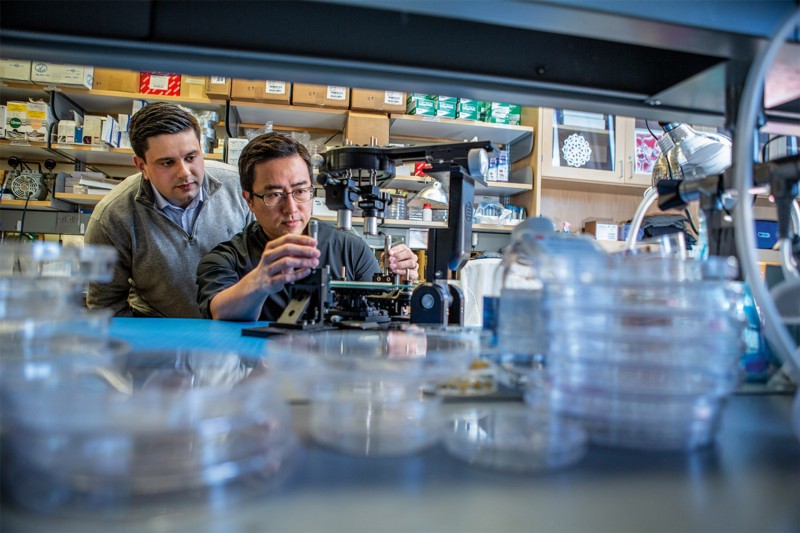Organs-on-a-chip Hurtle Toward the Final Frontier
Microfluidic devices lined with human cells are headed to the International Space Station later this month, part of an effort to understand why astronauts get sick more easily in orbit.

By Gwyneth Shaw
Throughout the 60-year history of the U.S. space program, from the Mercury capsules of the 1960s, to today’s International Space Station, astronauts have been getting sick. Researchers know being in orbit seems to suppress their immune systems, creating a more fertile ground for infections to grow. But nobody really understands why.
Early on the morning of April 30, a SpaceX Falcon 9 rocket will launch a cargo mission to the ISS from Cape Canaveral Air Force Station. Along with fresh water, food, and other necessities for the crew, the craft will be carrying two experiments designed by Penn scientists that could help shed light on why bugs have bedeviled space travelers.
For more than a decade, Dan Huh, a professor in the School of Engineering and Applied Science, has been developing super-small devices that use living cells to stand in for larger organs. These organs-on-a-chip hold great promise for all kinds of research, from diagnosing disease to curing them. They’re also a way to test things, including drugs and cosmetics, in a way that mimics real life without relying on animal subjects.
Last year, Huh and G. Scott Worthen, a professor of pediatrics at the Perelman School of Medicine and a neonatologist at Children’s Hospital of Philadelphia, got a $2 million grant to make the chips, then launch them into orbit, this year and again in 2021. The grant, from the National Center for Advancing Translational Sciences at the National Institutes of Health (NIH), NASA, and the Center for the Advancement of Science in Space, is part of a larger program to understand the physical and biological effects of space travel on humans.
“We are thrilled with this rare opportunity to probe one of the potential major health issues in space using our organ-on-a-chip technology,” Huh says. “It has been quite a journey to get to this point and we are all eager to see the successful launch of our devices.”
Continue reading at Penn Today.
